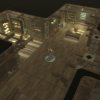Bran Stark |
| World of Westeros - People | |||
| Thursday, 15 April 2010 18:01 | |||
|
1st Level (Noble 1) Reluctantly she let go of them in her heart. But not Bran. NeverBran. “Yes,” she said, “But please Ned, for the love you bear me, let Bran remain here at Winterfell. He is only seven.” “I was eight when my father sent me to foster at the Eyrie,” Ned said, “Ser Rodrik tells me there is bad feeling between Robb and Prince Joffrey. That is not healthy. Bran can bridge that distance. He is a sweet boy, quick to laugh, easy to love. Let him grow up with the young princes, let him become their friend ... Our House will be the safer for it.”
Bran’s destiny begins with his great passion for climbing. Bran has explored all the trees and turrets in Winterfell. Surefooted and agile, he defi es every edict by his mother and every cautionary tale pronounced by Old Nan. “You’re not my son,” his father laughs, “You’re a squirrel.” On the day Eddard and Robert go hunting, Bran stays behind and decides to explore the rooftops when he comes across a taboo sight. Before Bran’s uncomprehending eyes, Queen Cersei and her brother Jaime are engaged in the act of incest. What Bran sees could kill them both, bring down their House, and jeopardise their three children. Jaime Lannister realises it all in the instant he sees the agog expression on little Bran Stark’s face, and sends the child plummeting to the earth far below. Bran’s legs are shattered by the fall and he enters a coma from which few think he will ever recover, yet he survives. When he wakes, he will be Bran the Broken, a cripple, never to know the triumph of a knight or the love of a woman, never to move without being carried. And yet there is some other power awakening in Bran. For reasons deep as the roots of the Weirwood, Bran is going to live, and more — he is going to fly. While Bran is unconscious, the wolves howl outside relentlessly, driving his mother to despair because she does not realise they wish to help. Bran’s wolf pup saves him from an assassin, and, once allowed close to Bran, stays with him until his recovery. Every Stark child has a primal link to his or her pup, but Bran’s is the hardest to defi ne. He hasn’t even found a name for it before he falls, but when he wakes, he knows with a calm certainty. His wolf is called Summer. The Starks have long stood against the evil out of the north, far beyond the wall. They know “winter is coming,” but in waiting, it is easy to forget that winter is only part of the cycle. Summer is more than hope for a better time — it is the power of life and passion, action and fire at its most potent. It is the opponent of stillness and death, and is personified in the wolf that stands by Bran Stark. If Summer protects Bran on the physical level, deep within his dreams Bran has been learning from a different companion: a three-eyed crow. The crow is an ill-favoured messenger, but it brings wisdom and rare gifts of fl ight and sight. Far above the world, Bran looks down and sees everything, from the secret tears in Sansa’s bedroom to the far north and the waiting heart of winter. From the small to the great, there is nothing hidden from the vantage point of a crow. This is why he must live. He has to fly, to see and understand. The three-eyed crow stabs his forehead with its beak, reminiscent of the stories Old Nan tells of crows pecking out eyes. But the bird is not trying to blind Bran. Two eyes see everyman’s view, but a third is needed to see what lies beyond. The beak of the three-eyed crow pierces through the mundane thoughts and ordinary perception, which hang like thick lids over Bran’s inner eye. Shock and pain can awaken the extraordinary within. Perhaps Bran has to lose his legs to gain his wings. It seems a poor exchange, especially as there seems to be nothing particularly incredible about Bran once he recovers consciousness. He cannot Reduced to physical inactivity, Bran learns to observe more than he did before. He watches faces and expressions, remembers his father, and learns from his brother. When Sansa sends her odd little message to Winterfell, Robb may fume and wonder where her anger has gone, but Bran senses the hole torn in Sansa’s heart. “She lost her wolf,” he says. Even more than Catelyn, Bran registers the changes in his eldest brother, and watches Robb’s transition from boy to lord. Robb works hard to make sure that Bran is always at the centre of life at the castle, but it is to Bran’s credit that Robb confides in him like an equal. This happens not just because Robb loves his brother, but because Bran comprehends a great deal of what is happening around him. When it comes to understanding feelings, he has no equal in the family. When Robb is absent, Bran takes on some of the duties of an heir to Winterfell, performing them admirably. Adjustment is slow, but something like ordinary life resumes. The crow dream might have been just a poppy-born delusion, Bran’s subconscious mind trying to spin him a wonderful story, a way of convincing himself that waking up was worth it. But around Bran, subtle changes begin to occur. When wildlings botch a raid in the wolfswood, Bran makes the acquaintance the wildling woman, Osha. She tells him tales of the strange lands beyond the Wall, of giants and magic and ancient stories just as Old Nan did. Old Nan’s stories have become frustrating to Bran, because he loved them so much before the accident. That was when he could see himself as the brave boy fighting off monsters and becoming a hero. Now, Nan’s stories just make him more aware of everything he has lost. Osha’s tales, however, seem to take up where Nan’s stories left off, the nursery tales giving way to something more real. Just as relevant to Bran, Osha shows him how to connect to the powers of the godswood and how to listen to the ancient voices whispering in the leaves. The people around Bran are constantly teaching him something, whether he realises it or not. Maester Luwin’s knowledge is impeccable, Osha’s tales of the wild sing to some deeper part of his soul, and on a very human level, the gentle devotion of Hodor Hodor is immensely strong, but simple of mind and easily alarmed. He takes care of Bran’s need for movement, and in exchange Bran gives him easy instructions, tries to keep him out of trouble and comforts him when he gets upset. The turning point comes the night before his father dies, when both he and Rickon dream of speaking to Eddard. On waking, Bran knows he must go down to the crypt. Rickon is there before him, wild with anger and tears and accompanied by a half-feral Shaggydog. Rickon’s knowledge is barely conscious, a toddler’s perception. He knows of the approaching storm in the way the wolves know, with his heart and soul. At this point, Bran becomes the big brother, comforting and calming Rickon as best he can, though he can hardly bear the heartbreak himself. This is how an adult deals with sorrow. Bran has the knowledge and has understood it even before the raven arrives with the news. Awareness is a powerful and painful gift. The sight maybe shaping within Bran’s mind, but there is still the promised flight to consider. However sharp his eyes may be, they are of limited use if they can look in only one direction. Maybe, just as life and power flows from Summer into Bran, so Bran’s sight may one day flow ... but the crow’s lessons do not reveal themselves all at once. The secret of flight is not an easy thing to learn. Bran is becoming part of the greater mystery, part of the secret of the everwinter and how to fight it, part of the transformation of Westeros and the world. On the face of it, Bran is just a crippled boy with enough Stark in his blood to refuse to be tragic. He can be a courteous host and responsible ruler of Winterfell when his family are away. Power is stirring deep within Bran, however, and if he speaks of dreams, or the godswood, or what waits beyond the wall, people would do well to listen.
|
|||
| Last Updated on Friday, 15 April 2011 18:14 |





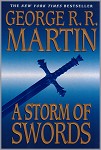
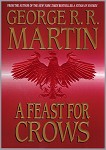












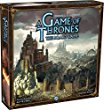

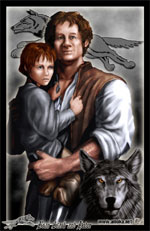 At seven years old, Bran has all the makings of a true Stark. Brave, bright, and ready for adventure, his head is already an interesting mish-mash of his Father’s instructions, Maester Luwin’s history, and Old Nan’s tales. Despite being Rickon’s senior by four years, the other children still treat Bran like the baby of the family. Perhaps this is because, unlike Rickon, he has plenty of charm and throws very few tantrums. Of all the children, Bran is the one who takes most notice of those around him. He listens and learns without judgement, possesses a great deal of empathy, and is popular with almost everyone as a result. He’s the one they all cherish, the one they all teach. Catelyn is proud of him, Ned answers his questions, Robb will guide him, Arya will fight for him, and Jon will weep for him. In such an atmosphere, it’s no surprise that Bran is very easy-going. The family adores him.
At seven years old, Bran has all the makings of a true Stark. Brave, bright, and ready for adventure, his head is already an interesting mish-mash of his Father’s instructions, Maester Luwin’s history, and Old Nan’s tales. Despite being Rickon’s senior by four years, the other children still treat Bran like the baby of the family. Perhaps this is because, unlike Rickon, he has plenty of charm and throws very few tantrums. Of all the children, Bran is the one who takes most notice of those around him. He listens and learns without judgement, possesses a great deal of empathy, and is popular with almost everyone as a result. He’s the one they all cherish, the one they all teach. Catelyn is proud of him, Ned answers his questions, Robb will guide him, Arya will fight for him, and Jon will weep for him. In such an atmosphere, it’s no surprise that Bran is very easy-going. The family adores him.